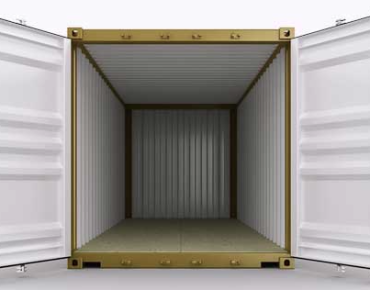Open Container Movement Gathers Steam

A growing list of hyper-scalers, communications equipment providers and carriers along with cloud and datacenter suppliers have lined up to back a rebranded application container standards effort.
The Open Container Initiative (OCI), formerly the Open Container Project, has added eleven new members including AT&T, Oracle and Verizon, the ground said this week.
"We really want to build [a container ecosystem] with end users in mind, especially enterprise users," Patrick Chanezon, a member of the technical staff at Docker, stressed in an interview. Along with common runtime spec, the initiative will focus on the ability to deploy multiple operating systems and architectures. The components along with a separate container orchestration effort announced this week are designed to move application containers from test and development to production environments.
The Open Container Project was unveiled in June. The effort is overseen by the Linux Foundation, and helped end the sniping over what form and direction emerging container technology should take. The agreement also represents a victory for Docker, which will donate code for its software container format and its runC runtime that will serve as the “cornerstone” for standards effort.
As the "container movement" gains momentum, proponents also say an increasingly interoperable infrastructure is supported by a growing cadre of developers and an extensive list of enterprises. Financial services companies like Goldman Sachs have placed large bets on container technology, and have pressed the emerging container ecosystem to come up with a single standard for deploying the technology.
Indeed, the pace of container standardization is quickening. Docker's Chanezon said the group's draft framework called "appc," for application container spec, is scheduled for release and public comment in the next several weeks. "We have never seen a technology standard emerge so fast," the enterprise IT veteran noted. "It's progressing at Internet speed."
Among the reasons for the standards push are concerns about fragmentation within the emerging container ecosystem. Another is providing application developers with a secure container technology, according to Jim Zemlin, executive director of the Linux Foundation.
Organizers also said the switch from the short-lived Open Container Project to Open Container Initiative was prompted by and earlier Linux Foundation project that uses a similar name.
The rebranded standards effort has also attracted a batch of new supporters, including telecom giants AT&T and Verizon along with hyperscale operators like Twitter. The social media giant said it would contribute code to the initiative.
AT&T noted that container standards and architectures would help speed its delivery of "cloud-enabled software." The carrier is in the midst of shifting 75 percent of its "targeted network" onto a software-defined network cloud platform.
"The use of containers is becoming the foundation for packaging and deploying applications," Lawrence Rau, Verizon Labs' technology director, added in a statement.
Related
George Leopold has written about science and technology for more than 30 years, focusing on electronics and aerospace technology. He previously served as executive editor of Electronic Engineering Times. Leopold is the author of "Calculated Risk: The Supersonic Life and Times of Gus Grissom" (Purdue University Press, 2016).










